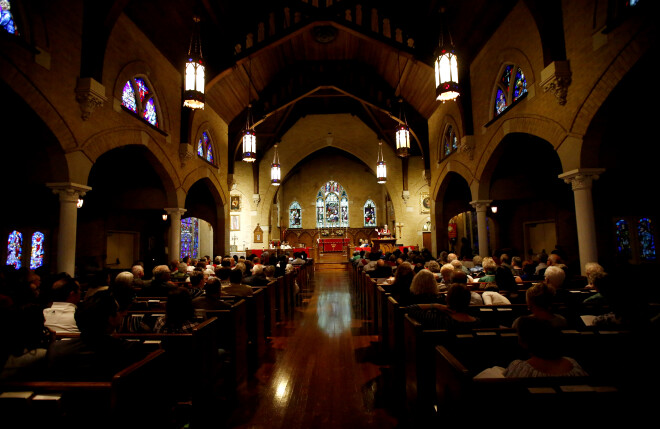The Church- Ordered

One way in which denominations differ is in the way they think about ordained ministry. Most all of them have it (an exception being the Plymouth Brethren). And within Anglicanism (of which we are part), there has been a debate about whether having bishops in ‘apostolic succession’ (whose lineage is traceable back to the apostles) is a necessary feature of the Church. I am here understanding it to be a positive blessing, of the ‘bene esse,’ since it is am embodied way to show and assure the continuity of apostolic teaching, so that the Church is faithfully ‘deep and wide.’
Several other things are worth saying as prelude. In modern times the Church has reclaimed the understanding that the priesthood, properly Christ’s alone, is best represented by the whole people of God, all of whom have, collectively and individually, a ministry: ‘you are a chosen people, a royal priesthood…’ (I Peter 2:9). Secondly, the understanding of the structure and process of ordination, in order to guide, display, and encourage the ministry of all (Ephesians 4:12), has varied over time. For example in the Middle Ages there were ‘minor orders’ such as catechist (teacher), which we have sought recently to revive. In Anglican Africa, functionally the ‘three orders’ are bishop, priest, and catechist in the life of a typical village.
But officially, and theologically too, we as Anglicans have kept the three-fold ministry from the ancient Church. How it came to be is a matter of debate, but what it serves to represent for us is clearer. Each order says something important about the Church as a whole. Bishops embody the ‘deep and wide’ aspect of the Church, the continuity and collegiality that go back to the apostles. Priests oversee the local ministry of Word and sacrament and encourage the laity there. Deacons remind us that our Lord came not to be served, but to serve, and we all should do likewise, as we care for the most needy around us, for ‘as you do it to the least of these…you do it to Me.’ (Matthew 25:40).
Read the ordinal section of the BCP and discuss the implied theology of orders.


